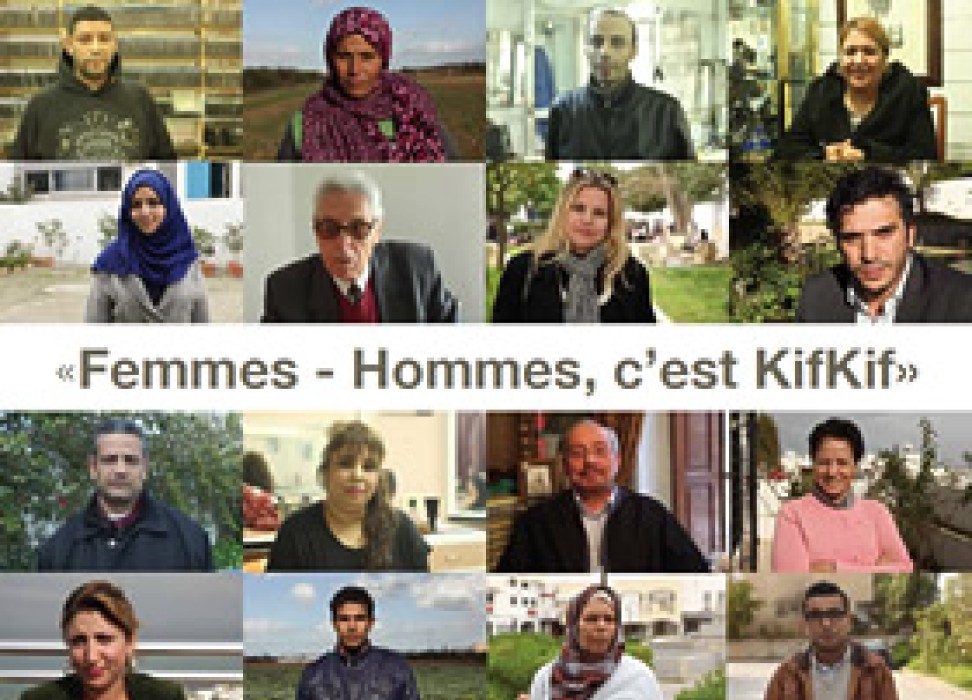Achieving equality for women in Tunisia
23 августа 2013

As the North African nation of Tunisia transits from an autocratic regime to a democracy, the rights of women, especially those who live in more remote and disadvantaged regions, are being given additional support and focus. A national campaign by the UN Human Rights Office aims to inform and mobilize women in the regions so they are better aware of the international convention, which guarantees their rights and dignity.
Dimiter Chalev, the head of the Human Rights Office in Tunis says, recently, there has been an “informal” push by conservative elements, to discredit CEDAW, the Convention on the elimination of discrimination against women. As an example, Chalev says the acronym CEDAW is deliberately confused with the word for HIV because, in French, the two words are very similar. Misleading summaries of some of the Convention’s key articles relating to equality before the law and equality in marriage and family relations have also been widely distributed, Chalev says.
Chalev says that although there has been no narrowing of the laws guaranteeing women’s rights since the overthrow of the regime in January 2011, there has been “a shrinking of the freedom of movement and safety that women used to enjoy, a shrinking of women’s public space, due to threats and intimidation.” The promotion of the Convention aims to demonstrate that women’s rights are the concern of both men and women in everyday aspects of life and that those rights are legally protected.
The campaign by the Office to take the principles embodied in the Convention to parts of the country which are very rarely included in public information efforts of this kind has, Chalev says, been “very well received”.
Emna Aoudi, from the Tunisian Workers’ Union, who has worked with the UN Human Rights Office on the initiative, says she has been surprised by the positive reactions to it from both men and women.
“The women of Gafsa and Kebili where the campaign has been conducted so far really had a thirst for information about their human rights and how to promote and defend them. Regarding the men, most of them think that women are human beings equal to men. Some others said that the Tunisian women had enough rights and that her place is in the home caring for children and the family,” Aoudi says.
The program has created a network of very enthusiastic women, committed to continuing to work for the rights of women, through the Convention and other laws to disseminate the culture of human rights, she says. These women, both individuals and members of local civil society organisations can build locally on the progress that has been made. The UN Human Rights Office has now been joined by UN Women and the United Nations Population Fund and the campaign will be taken to other regions through until the end of 2013.
“The men, and especially the women, from these more remote regions that we have met during this campaign have been very appreciative of the fact that, for once, institutions have made the effort to come forward and talk to them,” according to Chalev.
“We were also quite surprised”, he says, “by the level of knowledge already existing and the commitment to the issues of male/female equality and women’s rights, even in neighborhoods and governorates known to be rather conservative.”
“What we have tried to show in this campaign is that it is possible to reach this ‘Tunisia of the inside’… [where there is a] thirst for knowledge and commitment to build a better world where everyone would contribute with their differences which illuminate our minds and strengthen our humanity,” Aoudi says.
2013 marks the 20th anniversary of the World Conference on Human Rights, which led to the adoption of the Vienna Declaration and Programme of Action and the establishment of a High Commissioner for Human Rights. Its creation gave a new impetus to the recognition of human rights principles which has seen fundamental progress in the promotion and protection of human rights.
Women’s rights are now acknowledged as fundamental human rights. Discrimination and acts of violence against women are at the forefront of the human rights discourse.
The Convention on the Elimination of All Forms of Discrimination against Women (CEDAW) came into force in 1981 and its Committee was established in 1982. The Convention, often described as an international bill of rights for women, has almost achieved universal ratification. An Optional Protocol to the Convention was adopted in 1999.
23 August 2013
